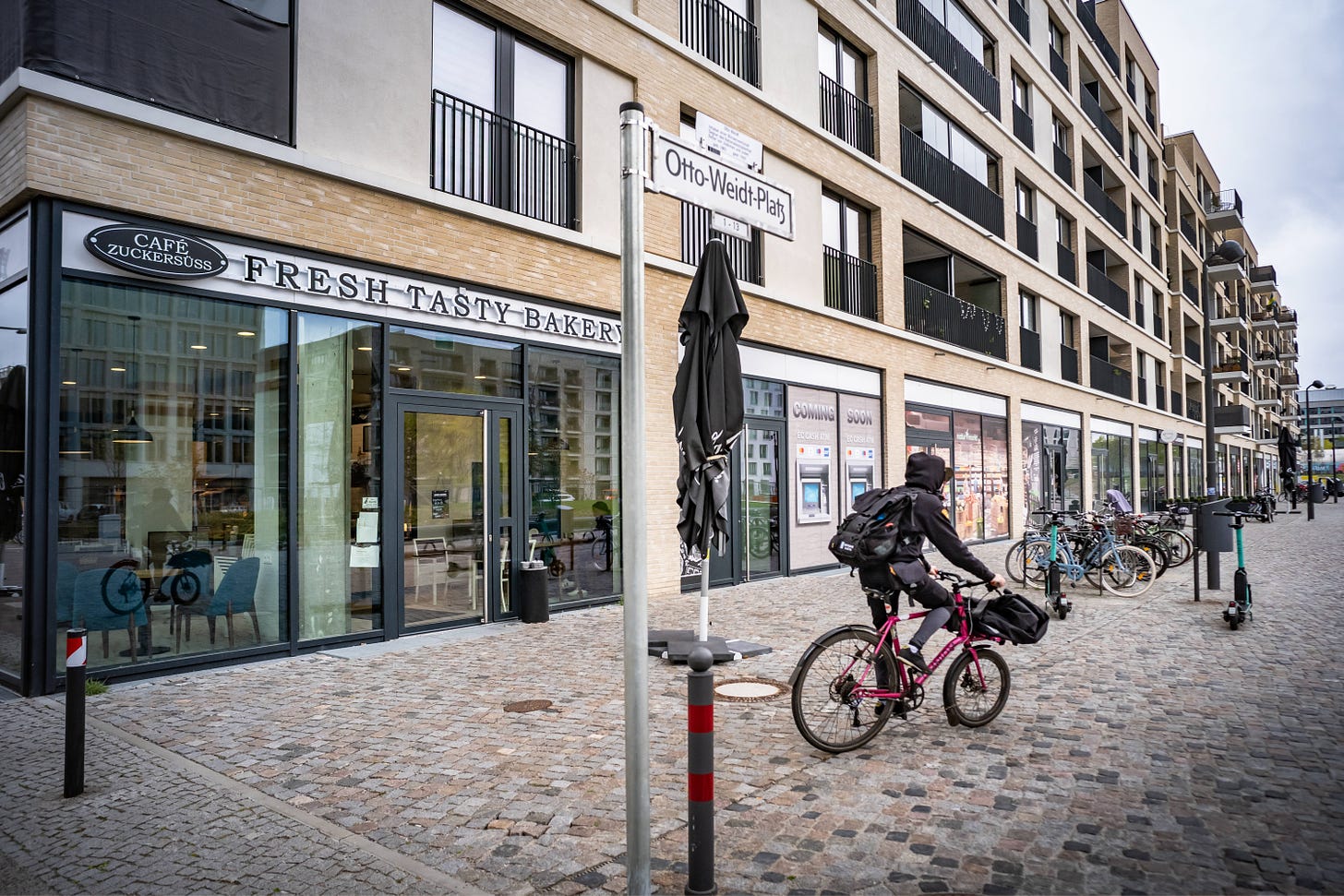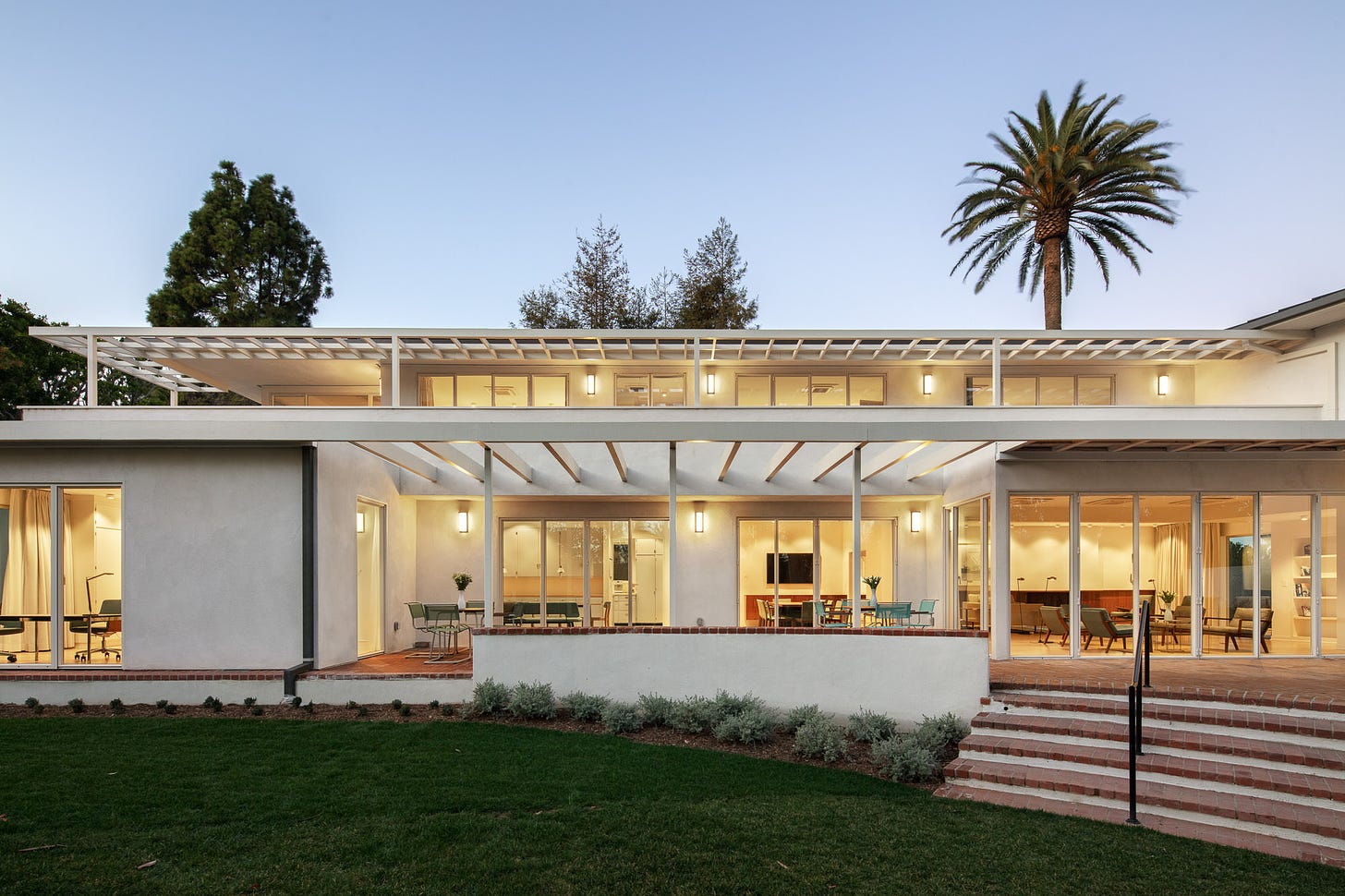#88: Climate ticket, English at the Amt, flat search hell, lake accident
And three über-German exhibitions at DHM

Hi Berliners,
At first glance, it’s welcome news for people hoping to buy their own apartment in Berlin: property site Immowelt predicts the average price for a flat in the capital will fall by about 2% by the end of the year. Thanks to rising interest rates and inflation, property prices won’t go up for the first time in many years. A bit of relief in an overheated market — which, incredibly, still remains cheaper than every other large German city. Currently the average price per square metre lies at €5,007. Priciest is leafy, posh Grunewald, where floorspace goes for €7,201, with Mitte not far behind at €6,854.
Of course, this won’t change a thing in the hellscape known as the rental market. If you’re a newcomer, the experience of finding a dwelling can be especially harrowing. And as Adithya, from Chennai, India, found out, having a “foreign-sounding name” makes your chances even worse, thanks to landlords’ flagrant racism. In his detailed account of every step of his flat search along with some great graphics, Adithya explains how he immediately began to receive more invitations to viewings when he registered with his partner’s German-sounding name. Read up on his entire saga (complete with comprehensive advice and explanation of German property jargon) here.
Finally, a group of international students at Alice Salomon Hochschule wrote to us about their research project on the process of finding a place as experienced by non-Germans. We’re happy to support anyone putting time and effort into something to better understand the issues facing the 20% of Berliners without a German passport, so it would be great if you took a few minutes to fill out their short survey on your own experiences on the housing market here: https://bit.ly/flatista
More news below!
Maurice
P.S: We’re on Twitter!
The Berlin corona stats for Tuesday, July 5
Received booster: 62.6% (62.6% Friday)
New cases in one day: 5,211 (4,782 Friday)
Total deaths: 4,650 (+3 over Friday)
🔴 7-day Covid-19 incidence (cases per 100,000): 491.8 (472.6 Friday)
🟡 7-day hospitalization incidence (also per 100,000): 7.7 (7.9 Friday)
🟢 Covid-19 ICU patient occupancy: 4.1% (4.1% Friday)
Source: Berlin’s corona page
Climate ticket?
Could the popular €9 transport ticket live on as a “climate ticket” after the scheme runs out at the end of August? According to press reports, the government is considering a long-term plan to lure more passengers onto public transport in order to cope with rising energy costs and help Germany meet its climate targets. No details have emerged yet about what it might cost. In June some 21 million €9 tickets were sold. Add to that the 10 million public transport users with subscription plans who received refunds, and you have about 31 million people benefiting from the programme. Interestingly, drivers might be benefting from the ticket too. A study by nav company tomtom found there were less traffic jams in 23 out of 26 German cities compared to before the introduction of the €9 ticket.
English as a second official language?
The “Great Resignation” has strained labour markets around the world. In Germany, everywhere from airports and old-age homes to restaurants and hotels are fighting tooth and nail to attract workers. As the Boomers begin to retire en masse, the labour shortage is only going to get worse. Hence, the business-friendly liberals, or FDP, the “yellow” part of the “traffic light” coalition with Die Grünen (green) and SPD (red), have come up with a 10-point plan to make immigration to Germany more attractive to both skilled and unskilled workers. What stuck out was the suggestion to make English the second official language in places such as the immigration office and Bezirksamt. Great idea, right? Don’t get your hopes up. The proposal was immediately shot down by Britta Ibald, spokesperson for the dbb, the association of civil servants: “When it comes to ordinances and laws, the official language in this country is German, if only for reasons of legal certainty”. Maybe in the long-term a better plan would be to boost the general level of English in the German population through better teaching of English at school. Ditching German dubbing for English-language movies and series wouldn’t be such a bad idea, either.
Like what you’re reading? Why not support us on Patreon? We have regular ticket giveaways for Berlin events plus you earn our unconditional love, though it does disappear when you stop supporting us so maybe there is one condition for our unconditional love.
Another fatal swimming accident
On Saturday, bystanders noticed that a man disappeared underwater in the middle of Schlachtensee. Emergency services were called to the scene. A diver was able to retrieve the 30-year-old alive, but he died a short time afterwards in hospital. It was the fourth swimming-related death in Berlin. When swimming in lakes, please be careful — know your limits and be aware that some lakes have dangerous currents. The district of Pankow, where two men drowned in the Weißer See in June, have started fining “wild swimmers” and is urging people to swim at beaches with lifeguards.
Triple bill: Angie, Karl and Richard
With cooler weather forecast this week, how about some indoor culture? A mere €8 gets you into the triple whammy of über-German exhibitions at Deutsches Historisches Museum on Unter den Linden: Karl Marx, Richard Wagner and Angela Merkel (here she is in 1991).
Factoid

Berlin and Los Angeles have been official “sister cities” since 1967 — it was West Berlin’s first international city partnership. However, their shared history goes back to at least the 1920s and 1930s when around 800 artists and intellectuals who had lived and worked in Berlin relocated to Southern California as the threat of Nazi dictatorship grew. Many of them, such as director Billy Wilder, worked in Hollywood — netting him five Oscars over his career. Playwright Bertolt Brecht, a communist, fared less well. The FBI had him pegged as an “enemy alien” and kept him under surveillance. In 1948, he settled in Soviet-controlled East Berlin.





The reason why Brecht went for East Berlin, btw, was not so much his political stance as the fact that Western-Allies controlled part of Germany refused to take him - as "enemy alien" in the US he was considered persona non grata in his own country, too. So Ost it was. Possibly one of the greatest things that could have happened to both him and Berlin theatre.
What makes you think Berlin teachers are doing a bad job teaching English? Are you being flip, or are there some kind of comparative statistics to support this? It would be great if Berlin could do something to attract more teachers, but for a start, it would be good if people just stopped blaming them for everything.